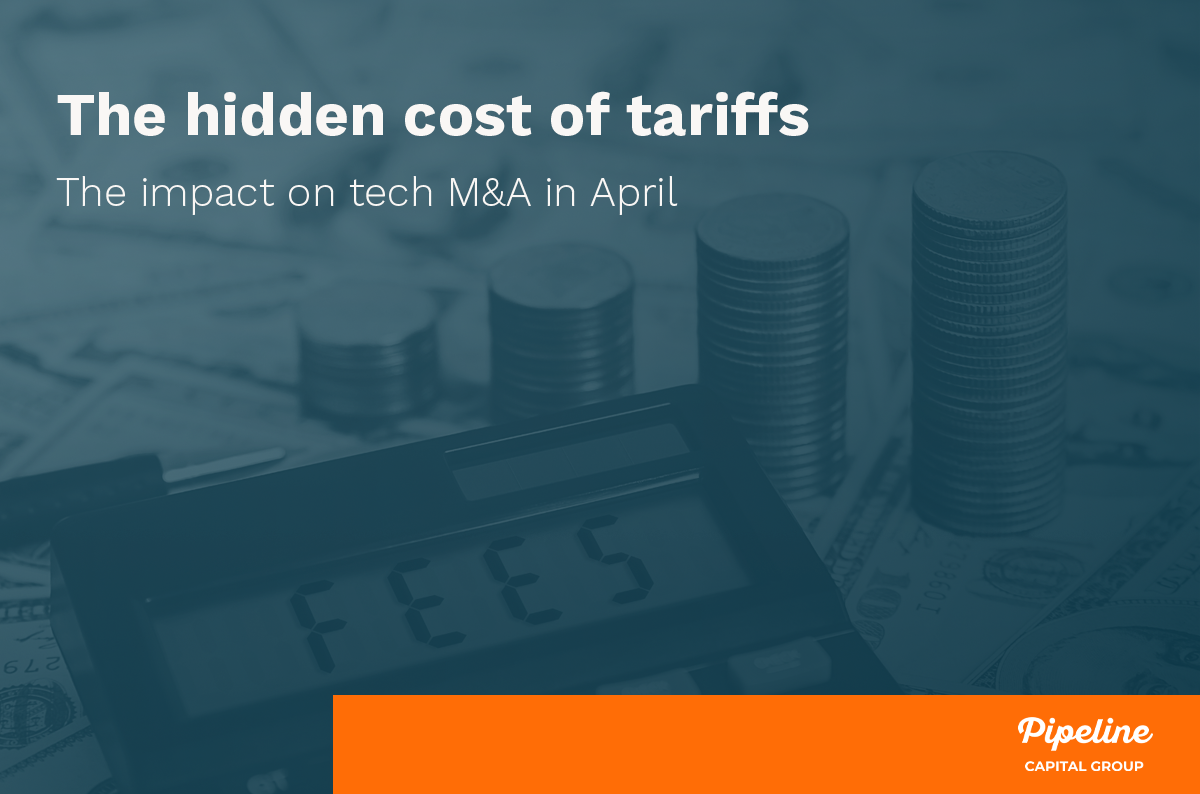In April 2025, the implementation of tariffs introduced by the Trump administration reactivated the global trade war. With massive tariffs — between 10% and 50% on steel, aluminum, beer, and other products — the stock markets experienced sharp declines, triggering a wave of uncertainty that directly affected the mergers and acquisitions (M&A) market, especially in the tech sector.
Drop in Announced Deals
The data is striking: in April, the number of global M&A deals reached a 20-year low. Only 555 deals were signed in the U.S. — the lowest since May 2009 — and 2,330 globally. This sharp drop clearly reflects the paralyzing effect of tariff instability on buyer and seller confidence.
Underlying Causes of the Tech Slowdown
Market Volatility
The impact on tech stocks was evident: the Nasdaq dropped more than 5% on several days following the announcements. This forced major buyers to reconsider pricing and deal feasibility, slowing down ongoing M&A processes.
Uncertainty in Supply Chains
The new tariffs directly affected critical hardware components, from copper to semiconductors. With no clarity or guarantees on what products would be affected and when, valuing tech companies became a complex exercise. Future cash flow projections now depended on macro variables beyond operational control.
Valuation Crisis
Many founders who had planned to sell or raise funds in June postponed their processes, mirroring the mindset of a cautious homebuyer: you don’t buy a house if you think it might drop 20–30% in value in a week. This “wait-and-see” effect translated into lower activity in the tech segment during April.
Impact on the Startup and Tech Ecosystem
Despite a recovery in Q1 — with 205 startup acquisitions in the U.S. according to PitchBook — April halted the momentum. Strategic deals, such as acquisitions of startups with recurring revenue or logistics solutions, slowed due to uncertainty around costs and trade risk.
Strategic Responses
Resilience of Specialized Funds
While large deals declined, some venture capital and private equity firms found opportunities in more stable segments like international SaaS and tech logistics. Providers like Zonos and Titan Cloud stood out, well-positioned for tariff-related shocks.
Structural Adjustments and Protective Clauses
André Zimmermann, European Partner at Pipeline Capital, recommends strengthening due diligence related to supply chains and regulatory risk. He also suggests including contingent price clauses and protections in earn-outs for future tariff scenarios.
Internal Focus and Innovation
Zimmermann adds that founder-led companies can shift to internal strategies: strengthening tech integration, optimizing operations, and adopting a “build-and-buy” mindset to remain adaptable without relying on external deals.
Strategic Keys in Uncertain Times
April 2025 made it clear that tariffs are no longer a minor issue — they’re central to valuation and strategic planning for any tech company. For founders and executives pursuing inorganic growth, this means going beyond product focus and seriously considering regulatory and geopolitical risks.
Having the right advisor makes all the difference.
“It’s not just about resisting the environment — it’s about preparing to come out stronger,” says Zimmermann.
“That’s why we help our clients build operational resilience and define the best exit strategy, without losing value along the way.”
With a practical approach and entrepreneurial mindset, Pipeline Capital’s partners believe success comes from understanding tech market tensions and crafting tailored solutions — from flexible post-closing deal structures to activating organic growth through tech integration.
In volatile times, the winners aren’t the fastest movers, but those best prepared to capture value at the right moment.

